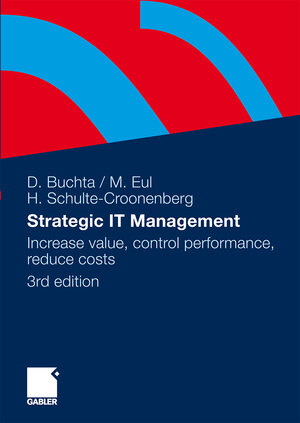
×
![Buchcover ISBN 9783834918253]()
Strategic IT-Management
Increase value, control performance, reduce costs
von Dirk Buchta, Marcus Eul und Helmut Schulte-CroonenbergThe Value of IT – New Perspectives for Utilizing IT What value does IT provide for the company? This has been the key question for IT man- ers and decision-makers at board level since technologization began. From the introduction of the first automated data processing systems to integrating value chains across enterprises, the potential of IT to generate benefit and, in the final analysis, generate value for companies has grown in leaps and bounds. In the 1970s, the value of an IT investment for automating individual operations consisted of faster and cheaper handling of paper-based activities, and therefore, for example, shorter time-to-invoice and collection cycles for faster inpayments. In the 1980s, the triumphal march of the PC and the first integrated applications not only reduced business process costs, but also accelerated and optimized entire business process chains. For example, in the mid- 1980s, systems such as SAP R/2 were already offering integrated processes for everything from procurement, inventory management and distribution to accounting and controlling. Processes ran more smoothly, interfaces were optimized or eliminated, in short: huge pot- tial for reducing business process spending was created. In the 1990s, Enterprise Resource Planning (ERP), Customer Relationship Management (CRM) and Supply Chain Management (SCM) then made it possible to integrate business processes across the value chain.





